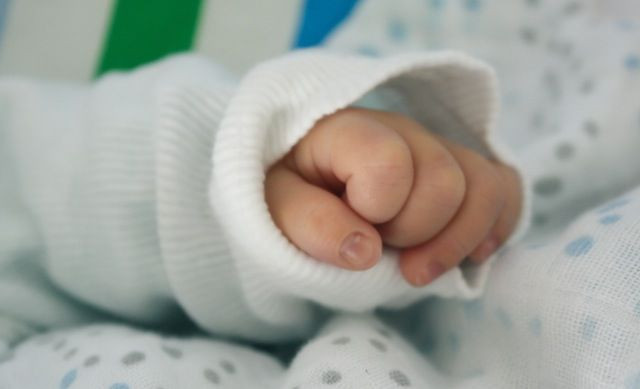IVF Side Effects: Sons Conceived By In Vitro May Inherit Poor Sperm Quality, Fertility Problems

Most dads will give their sons the classic, "you can get someone pregnant" sex talk during puberty. Boys born via in-vitro fertilization (IVF) treatments could be hearing the opposite: "You may be infertile." A recent study published in the journal Human Reproduction found IVF baby boys may have poorer sperm quality, and may possibly inherit their father's infertility.
In the 1990s, doctors in Brussels developed intracytoplasmic sperm injection (ICSI) to assist male infertility, abnormally shaped sperm, or sperm that does not move well. The treatment involves selecting healthy sperm and injecting it into an egg before the resulting embryo is implanted into the mother. Andre Van Steirteghem, a researcher who helped pioneer ICSI, and co-author of the recent study, has delved into the possible genetic fallout for ICSI sons.
Before ICSI was carried out, prospective parents were warned their sons may have impaired sperm and semen like their fathers. However, parents didn't see this as reason to abstain from treatment, because most believed: "if this happens ICSI can then also be a solution for our sons," van Steirteghem said in a statement.
Van Steirteghem and his colleagues from the Vrije Universiteit Brussel looked at 54 men aged 18 to 22, who were born from ICSI, and compared them with 57 men of the same age who parents conceived naturally. The first ICSI baby was born on January 14, 1992, and all the men in the study were born in the early years of the technique, between 1992 and 1994.
Men born from ICSI had almost half the sperm concentration of naturally conceived men, as well as a 62 percent lower sperm count, and 66 percent lower sperm motility, or how well sperm can move. They were about three times more likely to have sperm concentrations below the World Health Organization's "normal" level — 15 million per milliliter of semen; four times more likely to have sperm counts below 39 million.
The researchers adjusted their results for factors that could affect semen quality, such as age, body mass index and sexual malformations.
“These first results from the oldest group of ICSI-conceived adults worldwide indicate that a degree of ‘sub-fertility’ has, indeed, been passed on to sons of fathers who underwent ICSI because of impaired semen characteristics,” said van Steirteghem, who is now emeritus professor at VUB, and a consultant at the University Hospital (UZBrussel), in a statement.
During its infancy in clinical settings, researchers discussed what would be the future fertility outcomes of men conceived via ICSI when they reached adulthood. This became an area of concern since ICSI was developed to help a man’s poor sperm quality, which is usually a genetic issue. Naturally, researchers hypothesized if those genes were inherited by any sons born through ICSI, it seemed likely they would have the same level of infertility and would also require the use of ICSI if they wanted children.
However, researchers caution the findings cannot be applied to all offspring born after ICSI, since the treatment can be used when there is no evidence that a couple's infertility is due to abnormal sperm. Typically, ICSI is often used when the cause of infertility is unknown.
Moreover, these results suggest ICSI is not exactly a treatment for male infertility, but rather a way to get through a problem that the next generation will have to deal with. Previous research has estimated if even half of affected men used ICSI to have kids, the incidence of severe male factor infertility could double nationwide within seven generations.
This could potentially lead to a society of men who can’t conceive children naturally.
Source: Belva F, Bonduelle M, Roelants M et al. Semen quality of young adult ICSI offspring: the first results. Human Reproduction. 2016.



























